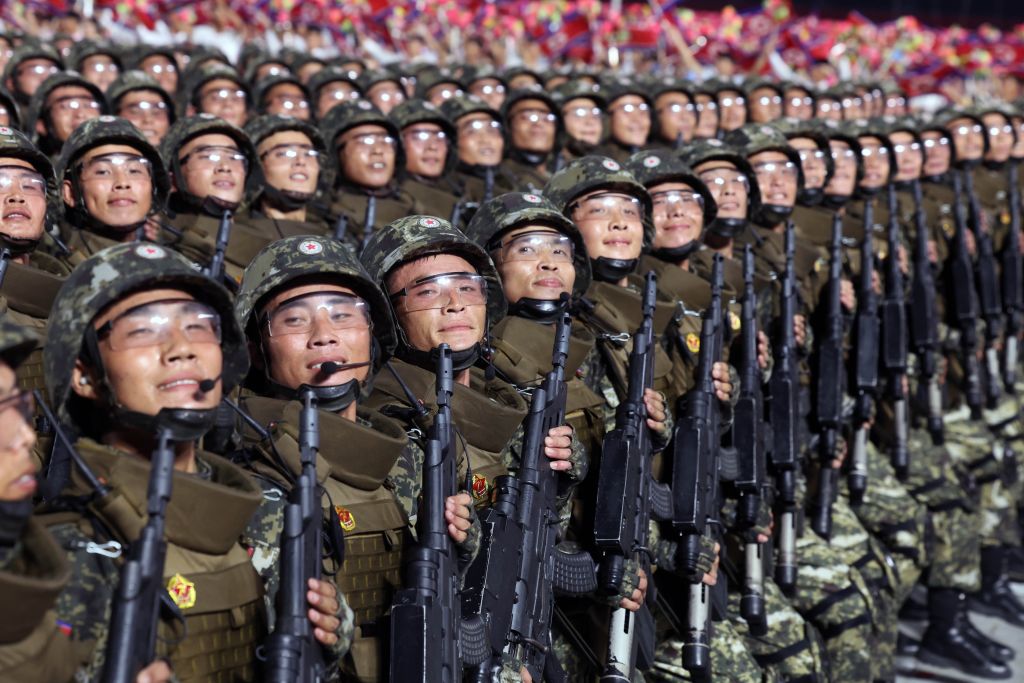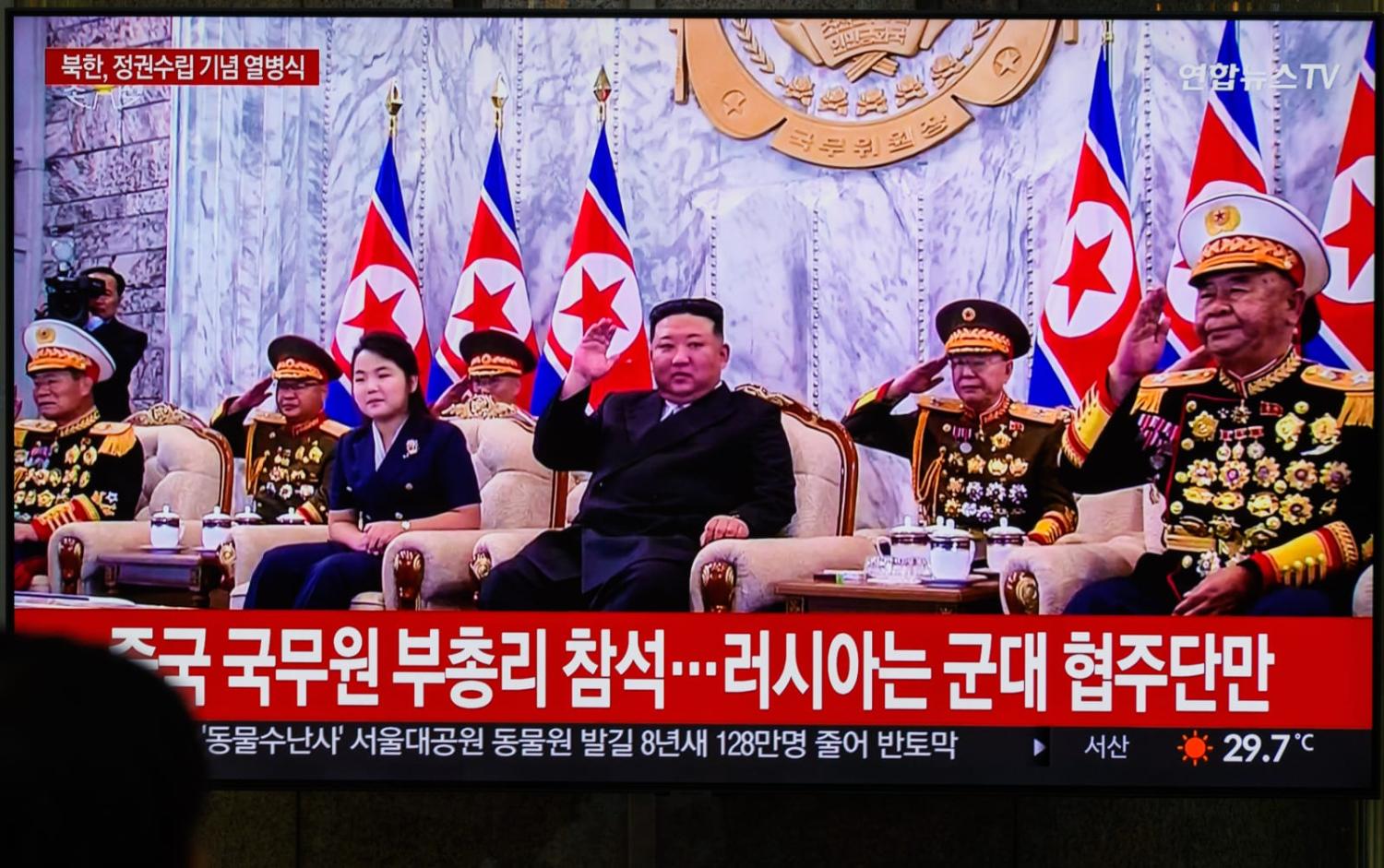Many observers think it is likely North Korea is planning and preparing to start a war this year. Pyongyang has indeed made bellicose noises in the last few months. But the main trigger for the spate of commentaries giving serious consideration to the idea of an imminent attack by the Democratic People’s Republic of Korea (DPRK) is a 11 January article in 38 North by two respected North Korea experts, former senior US State Department official Robert L. Carlin and Middlebury Institute of International Studies Professor Siegfried S. Hecker. “We believe that, like his grandfather in 1950, Kim Jong-un has made a strategic decision to go to war,” Carlin and Hecker write.
There’s a problem here: Carlin and Hecker’s analysis, the foundation of the war scare, is unconvincing.
Their case rests on three points. First, the DPRK has abandoned its previous goal of improving relations with the United States since Kim’s “traumatic loss of face” at the failed 2019 Hanoi summit meeting with US President Donald Trump. Second, Pyongyang believes US global influence is receding relative to the power of China and Russia. And third, the DPRK government has recently made official statements indicating readiness to go to war against South Korea.
Carlin and Hecker say Kim Jong-un has chosen “a military solution” because there are “no good options left” – but the authors don’t say what problem Kim is trying to solve, nor how an elective war would solve it.
Alternatively, Carlin and Hecker’s analysis is far better suited to a more reasonable conclusion: that since 2019, Kim’s government has shifted its efforts, to court outside assistance in the pursuit of its security and economic objectives away from reaching agreements with the United States and South Korea and toward a closer partnership with the China/Russia Bloc. That conclusion implies continued tensions on the Korean Peninsula, but not a second Korean War.

Kim gave a lengthy speech to the DPRK legislature on January in which he elaborated about relations with South Korea. As widely reported, Kim said the DPRK will no longer work toward reunification, and will henceforth characterise the South as the “invariable principal enemy” rather than “consanguineous”. He called for revising the DPRK constitution to remove verbiage implying that North and South are parts of the same country and calling South Koreans “compatriots.”
As some analysts have pointed out, recasting South Koreans as enemies rather than cousins might reduce the psychological dissonance that would accompany a decision to go to war. For decades up to now, however, Pyongyang’s official policy of striving for reunification did not prevent the DPRK government from making threats of mass violence against South Koreans (see, for example, the threat make Seoul a “sea of fire”).
Furthermore, in the same speech, Kim said plainly that he does not plan to start a war. “We will never unilaterally unleash a war if the enemies do not provoke us,” he said. “There is no reason to opt for war, and therefore, there is no intention of unilaterally going to war.”
Kim says the policy change on reunification is a reaction to an “escalation” in hostility from the DPRK’s adversaries. He specifically cites South Korean discussion about the possible “collapse” of the North Korean state, “remarks made by the US authorities about the ‘end of our regime’”, US-South Korea joint military exercises, the US policy of nuclear-weapons-capable platforms regularly visiting South Korea, and enhanced trilateral cooperation between the United States, South Korea and hated Japan. Relatedly, South Korea has announced it is building a capability to pre-emptively kill Kim and other top North Korea officials. Pyongyang’s seemingly warlike behaviour is partly reactive.
We don’t need to rely on Kim’s word. He would not be sending stocks of ammunition and missiles to Russia if he planned to fight a war on the Peninsula in the immediate future.
An even stronger reason to doubt the Carlin-Hecker thesis is this: the combined forces of the United States and South Korea give them overwhelming military superiority over the DPRK at both the conventional and nuclear levels.
This year will see important elections in both the United States and South Korea. A return of Donald Trump to the White House is possible. Pyongyang might hope that a sharp jolt will force an overstretched Washington to return to negotiations ready to offer concessions, such as relief from economic sanctions, to reduce the number of global hotspots. Therefore, it might make sense for Kim to order a lethal military action as a means of gaining political leverage – but only if he was confident Seoul and Washington would understand the attack as limited and isolated.
This leads to an important observation: it is likely that much of the credibility of the Carlin-Hecker thesis rests on the widely-held but questionable assumption that Kim’s decision-making is “erratic,” and therefore need not make sense.
Kim needs to deter his enemies, which explains his military build-up and missile tests. He fears political contamination from South Korea, which may have pushed him to make official his de facto non-reunification policy. Welcoming a general war, however, would not solve any of Kim’s problems.

